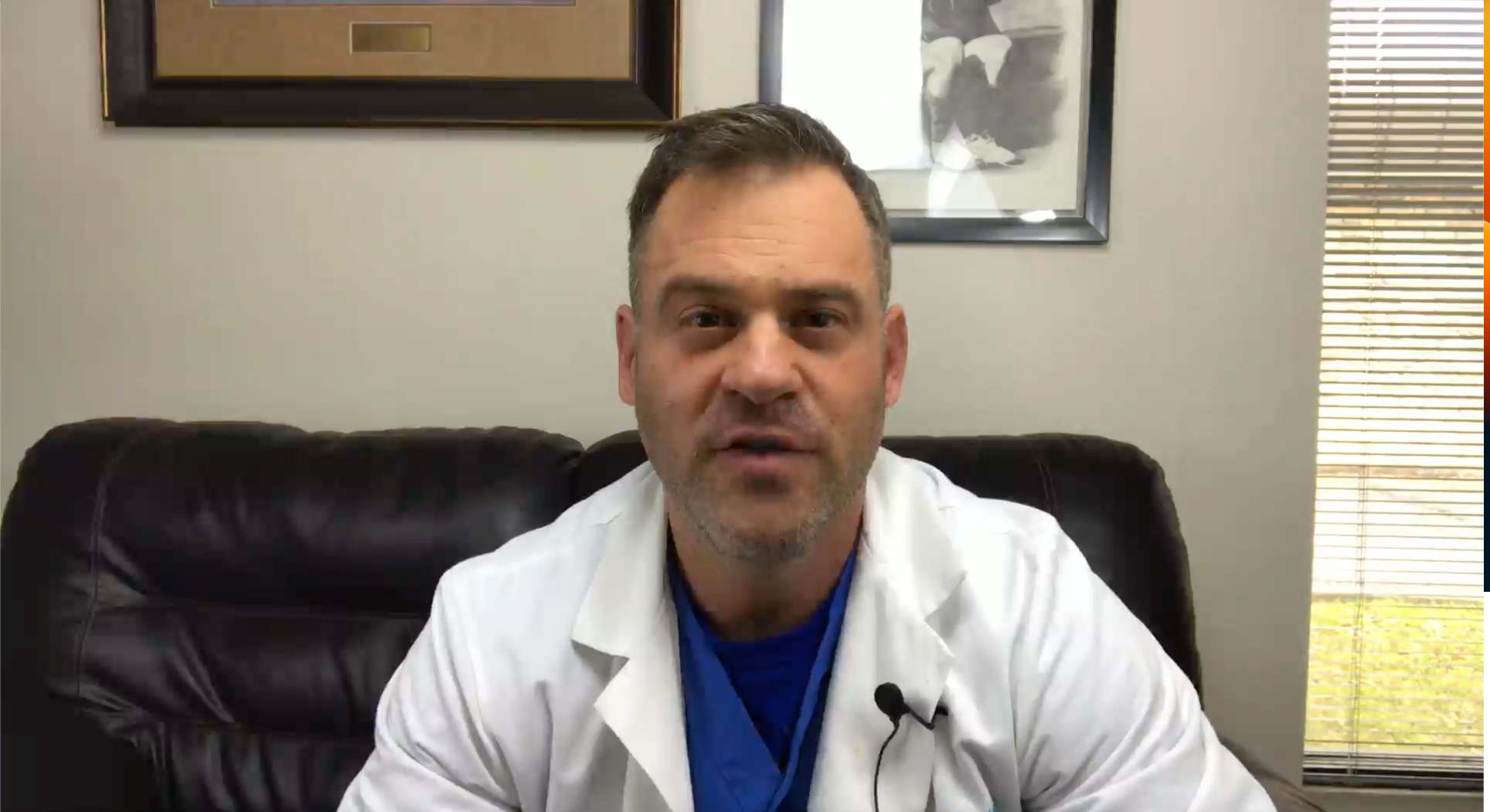What Are Implants?
Here at Precision Dentistry and Implants, we understand the importance of a healthy and confident smile. That’s why we offer dental implant solutions for patients seeking a superior alternative to dentures and dental bridges for restoring missing teeth. Dental implants have gained immense popularity due to their ability to provide natural-looking and fully functional replacement teeth.
Our experienced team at Precision Dentistry and Implants utilizes cutting-edge technology and biocompatible materials like titanium or zirconia to ensure that implants fuse seamlessly with the jawbone through a process called osseointegration. This robust foundation supports custom-made crowns or bridges, closely mimicking the structure and function of natural teeth. Dental implants not only improve chewing efficiency and speech clarity but also boost self-confidence while preserving jawbone health and adjacent teeth.
With an impressive success rate and numerous advantages, dental implants have become the gold standard in tooth replacement. At Precision Dentistry and Implants, our goal is to transform smiles and lives by providing exceptional dental implant care and an unparalleled patient experience.

THE PROCESS
Steps Of Our All New Smile Procedure (All-on-4, All-on-6)
Step 01
Your journey begins with an initial consultation with Dr. Matt Huff. During this visit we will take a CT Scan of your head to allow Dr. Huff to identify the ideal spots for him to place dental implants to anchor your new smile. Dr. Huff will explain what to expect during the process and provide you with an all-inclusive quote for your All New Smile procedure.
Step 02
Dr. Huff has planned your procedure and is ready to begin. During this first procedure Dr. Huff will remove any remaining teeth in the upper and/or lower mouth and treat any infection in the gums. Then he will place 4 to 6 dental implants per arch of teeth to secure your new smile. Finally, he will attach a beautiful new set of teeth (for temporary use for about 2 months). This entire procedure is done under safe and gentle general anesthesia. Most patients barely remember the procedure! They go home that day with an amazing new smile.
Step 03
Dr. Huff likes to have his All New Smile patients come in a few times over the next two months to check the healing progress of the dental implants. During this time, we are also fabricating your permanent and more durable set of replacement teeth. Finally, we unscrew the temporary teeth and install your new permanent teeth in a very short and easy procedure.

Schedule Your Consultation!
Schedule your consultation with our experienced dental professionals to explore your tooth replacement options and determine if dental implants are the right choice for you.
Get STARTEDMissing Teeth? Need Dental Implants?
Get The Implant Guide To Learn More
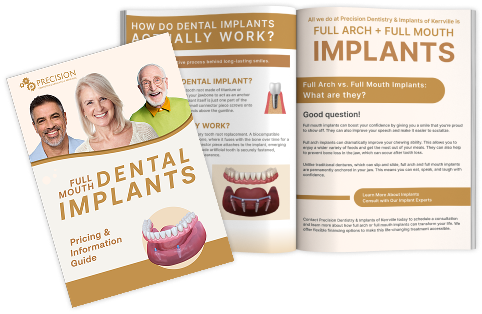
This Guide Will Show You:
- Dental implant options
- Average pricing
- Factors that affect eligibility
- And more…

SMILE GALLERY
Beautiful Smiles We Have Created
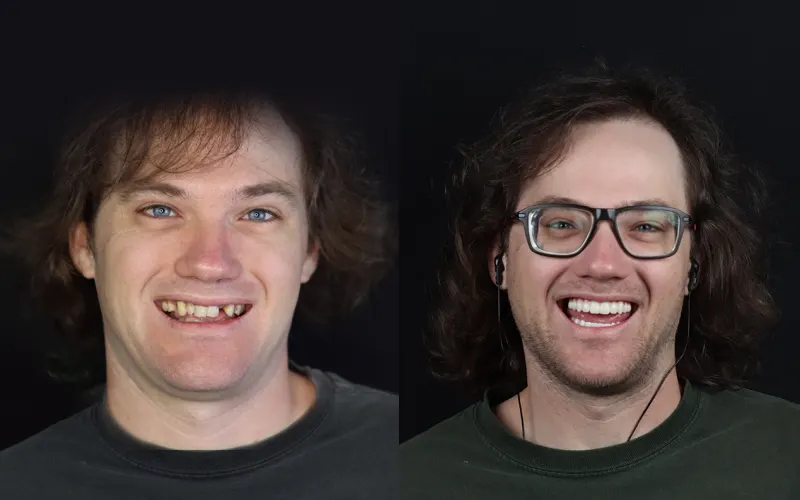
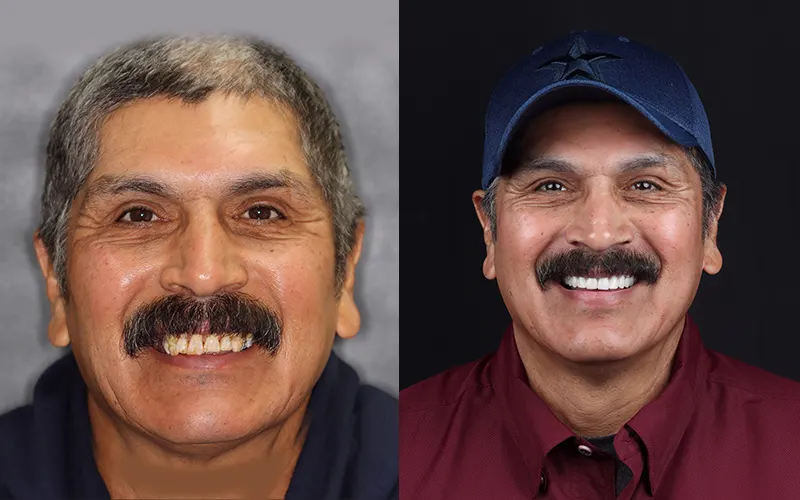

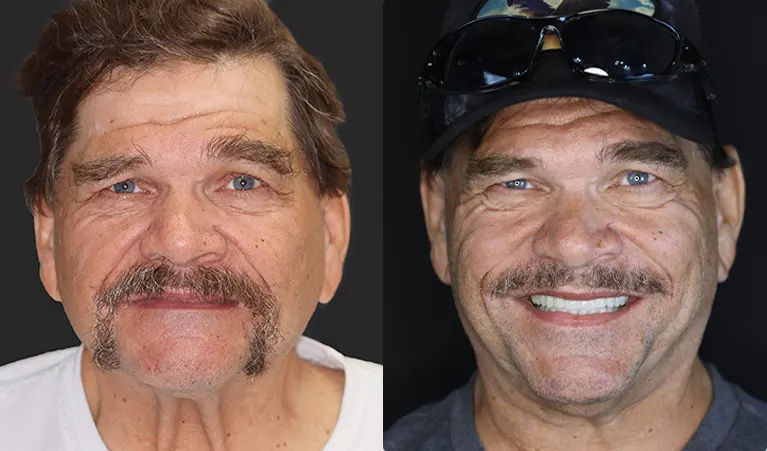


FAQ
Everything You Need To Know
Frequently asked questions about Dental Implants



